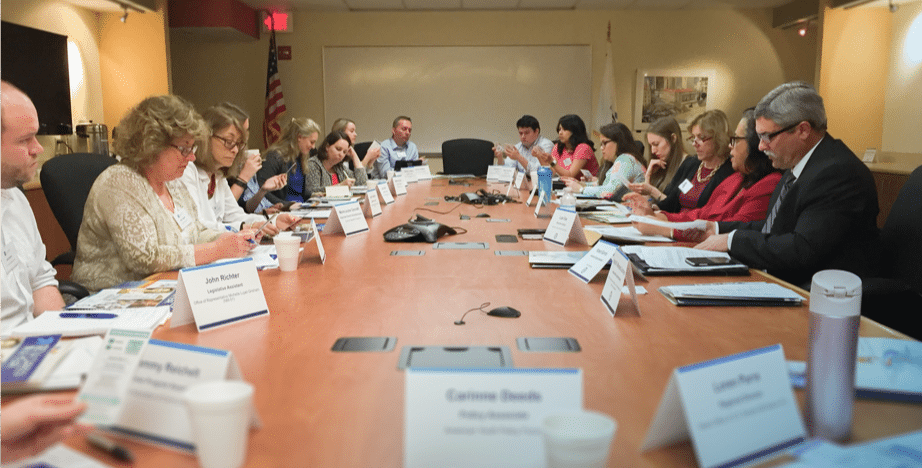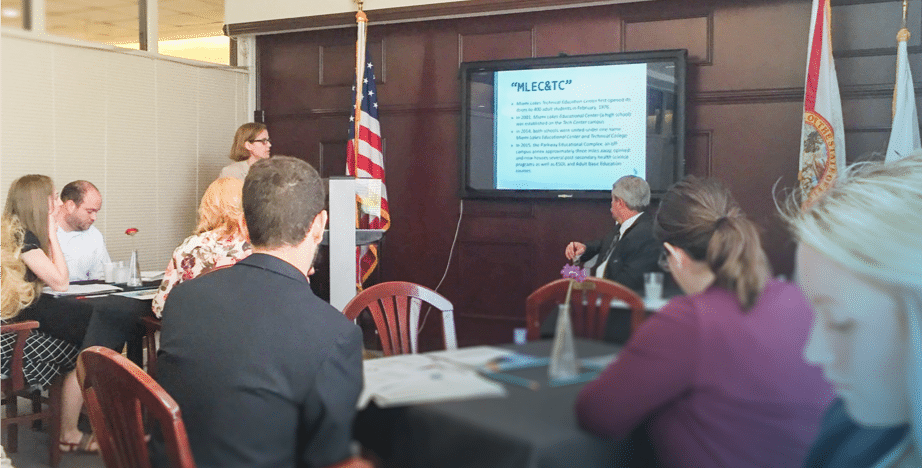Overview
State child welfare systems are a crucial component of the development of vulnerable youth, particularly those in foster care. These welfare systems, which in 2011 served 6.2 million children in the United States, are responsible for services tied to youth well-being, including the use of psychotropic medications for emotional and behavioral problems. However, knowledge of research about recommended practices for appropriate use of medications varies greatly among child welfare professionals, and the ways in which research evidence is used differs across states and communities. This webinar focused on how mid-level policymakers in state child welfare agencies acquire, interpret, and use research evidence to develop policies regarding the use of medications for youth in foster care with the goal of improving their life and health outcomes. Responding to the dramatic increase in the use of these medications in recent years, the federal government mandated that all state child welfare agencies develop plans to review and manage behavioral health services for youth. Presenters during this webinar explored various state and local responses to the federal charge and their engagement with research as they considered their options and developed plans. New Jersey’s Department of Children and Families also shared their story.
Presenter Biographies
 Dr. Christopher Bellonci is a Board-Certified Child/Adolescent and Adult Psychiatrist; Associate Professor in the Psychiatry Department of Tufts University School of Medicine. Dr. Bellonci is a Distinguished Fellow of the American Academy of Child and Adolescent Psychiatry (AACAP) and a member of AACAP’s Workgroup on Quality Issues which is responsible for writing the practice parameters defining the standards of care for the field of child psychiatry. He leads the Clinical Distance Learning Series of the TA Network in support of the Substance Abuse and Mental Health Administration’s Systems of Care initiative. In 2008 he provided testimony to the U.S. House of Representatives regarding unlicensed and unregulated boot camps and wilderness programs as well as the increasing use of psychotropic medications for children in the Child Welfare System. Dr. Bellonci provides consultation, lectures and technical assistance nationally on the subjects of child psychiatric practice, foster care, special education, residential treatment and mental health best practices.
Dr. Christopher Bellonci is a Board-Certified Child/Adolescent and Adult Psychiatrist; Associate Professor in the Psychiatry Department of Tufts University School of Medicine. Dr. Bellonci is a Distinguished Fellow of the American Academy of Child and Adolescent Psychiatry (AACAP) and a member of AACAP’s Workgroup on Quality Issues which is responsible for writing the practice parameters defining the standards of care for the field of child psychiatry. He leads the Clinical Distance Learning Series of the TA Network in support of the Substance Abuse and Mental Health Administration’s Systems of Care initiative. In 2008 he provided testimony to the U.S. House of Representatives regarding unlicensed and unregulated boot camps and wilderness programs as well as the increasing use of psychotropic medications for children in the Child Welfare System. Dr. Bellonci provides consultation, lectures and technical assistance nationally on the subjects of child psychiatric practice, foster care, special education, residential treatment and mental health best practices.
 Debra Lancaster is a member of the Executive Management Team in the New Jersey Department of Children and Families and serves as Director in newly formed Office of Strategic Development. Debra and her office are charged with modernizing DCF’s service array, and is focused on efforts to integrate trauma informed evidence supported programming that is responsive to the needs of the children, youth and families. Previously, Ms. Lancaster served as DCF’s Director of Office of Child and Family Health where she was instrumental in the implementation of DCF’s Child Health Units; the development and implementation of psychotropic medication policy; and, development of forensic guidelines. Most recently, she has led the launch of the Department’s first permanent supportive housing efforts for high needs child welfare involved families. Debra’s background is in work organization and management and she has a Master’s in Labor and Industrial Relations from Rutgers University.
Debra Lancaster is a member of the Executive Management Team in the New Jersey Department of Children and Families and serves as Director in newly formed Office of Strategic Development. Debra and her office are charged with modernizing DCF’s service array, and is focused on efforts to integrate trauma informed evidence supported programming that is responsive to the needs of the children, youth and families. Previously, Ms. Lancaster served as DCF’s Director of Office of Child and Family Health where she was instrumental in the implementation of DCF’s Child Health Units; the development and implementation of psychotropic medication policy; and, development of forensic guidelines. Most recently, she has led the launch of the Department’s first permanent supportive housing efforts for high needs child welfare involved families. Debra’s background is in work organization and management and she has a Master’s in Labor and Industrial Relations from Rutgers University.
 Laurel K. Leslie, MD, MPH is a Professor of Medicine and Pediatrics at Tufts University School of Medicine. She is also the Vice President of Research at the American Board of Pediatrics. Dr. Leslie’s research interests focus on the identification and treatment of health, developmental and mental health needs of children and adolescents across the health, mental health, child welfare, and school sectors. Specific areas of inquiry include the implementation of guidelines and policy initiatives, comparative effectiveness of pediatric screening and treatment, and collaborative models of care across sectors that incorporate the child and family as active participants in care. Dr. Leslie is also committed to improving the future of physician training and practice, with the ultimate goal of improving outcomes for children and adolescents.
Laurel K. Leslie, MD, MPH is a Professor of Medicine and Pediatrics at Tufts University School of Medicine. She is also the Vice President of Research at the American Board of Pediatrics. Dr. Leslie’s research interests focus on the identification and treatment of health, developmental and mental health needs of children and adolescents across the health, mental health, child welfare, and school sectors. Specific areas of inquiry include the implementation of guidelines and policy initiatives, comparative effectiveness of pediatric screening and treatment, and collaborative models of care across sectors that incorporate the child and family as active participants in care. Dr. Leslie is also committed to improving the future of physician training and practice, with the ultimate goal of improving outcomes for children and adolescents.
 Tom Mackie, PhD, MPH, is an Assistant Professor at the Department of Health Systems and Policy at the Rutgers School of Public Health and core faculty at the Institute for Health, Health Care Policy and Aging Research at Rutgers University. Dr. Mackie received a joint-doctorate in Sociology and Social Policy at the Graduate School of Arts and Sciences and the Heller School, Brandeis University. Recent work includes a health services grant from the Agency for Healthcare Research and Quality in which Dr. Mackie employed both qualitative (semi-structured interviews) and quantitative data (Medicaid claims analysis) to examine state-level mechanisms to monitor psychotropic medication safety for children in foster care. More generally, his research focuses on access to, and quality of health and mental health services for children and adolescents in public sector systems, including those in foster care. He has served as a consultant to the Administration for Children and Families regarding psychotropic medication oversight for children in foster care and to the Rogers Working Group, a state multi-agency initiative that aimed to improve psychotropic oversight for children in foster care within Massachusetts. His current portfolio of mixed methods research is supported by the WT Grant Foundation, National Institute of Mental Health, Patient Centered Outcomes Research Institute, Casey Family Programs and the New Jersey Department of Children and Families.
Tom Mackie, PhD, MPH, is an Assistant Professor at the Department of Health Systems and Policy at the Rutgers School of Public Health and core faculty at the Institute for Health, Health Care Policy and Aging Research at Rutgers University. Dr. Mackie received a joint-doctorate in Sociology and Social Policy at the Graduate School of Arts and Sciences and the Heller School, Brandeis University. Recent work includes a health services grant from the Agency for Healthcare Research and Quality in which Dr. Mackie employed both qualitative (semi-structured interviews) and quantitative data (Medicaid claims analysis) to examine state-level mechanisms to monitor psychotropic medication safety for children in foster care. More generally, his research focuses on access to, and quality of health and mental health services for children and adolescents in public sector systems, including those in foster care. He has served as a consultant to the Administration for Children and Families regarding psychotropic medication oversight for children in foster care and to the Rogers Working Group, a state multi-agency initiative that aimed to improve psychotropic oversight for children in foster care within Massachusetts. His current portfolio of mixed methods research is supported by the WT Grant Foundation, National Institute of Mental Health, Patient Centered Outcomes Research Institute, Casey Family Programs and the New Jersey Department of Children and Families.




